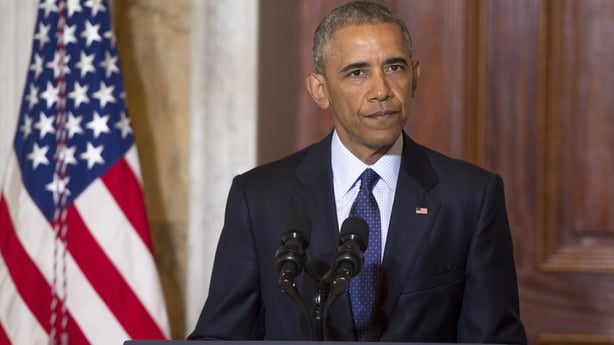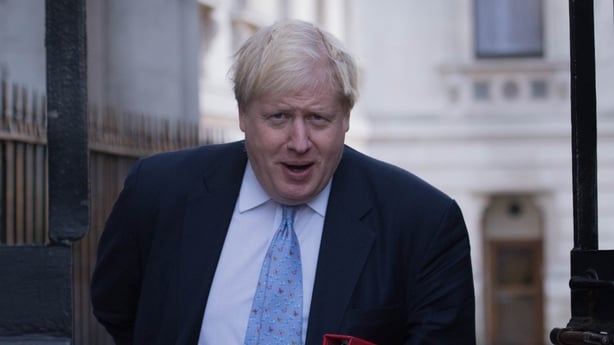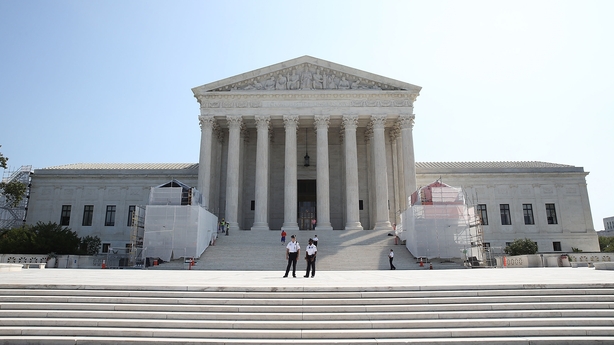Acting US Attorney General Sally Yates has said that the Justice Department cannot legally defend President Donald Trump's immigration order.
In a statement, Ms Yates said that she did not believe the order banning immigrants from seven countries and all refugees was lawful.
Ms Yates was appointed under the Obama administration and stayed on in an acting role pending the confirmation in the Senate of Mr Trump's nominee, Senator Jeff Sessions.
As acting-attorney general, it is the responsibility of Ms Yates to decide whether the US government will defend the order in the multiple legal actions that have now been filed in multiple jurisdictions against it.
The Office of Legal Counsel has already reviewed and approved the order, but Ms Yates pointed out in her statement that review only checks that the Executive Order is lawful and properly drafted.
Ms Yates' examination also takes account of "statements made by the administration and surrogates" around the time of the order, which may give more information as to its purpose.
Ms Yates said that she is responsible for ensuring that the positions the US government takes in court "remain consistent" with a "solemn obligation to always seek justice and stand for what is right".
She said that "at present" she's not convinced that defending Mr Trump's executive order "is consistent" with that responsibility to seek justice and stand for what is right.
She said she is also not convinced that the order is lawful.
She said as long as she is acting-attorney general, the US Department of Justice will not present arguments in court to defend the order.
Pressure has mounted on Mr Trump over the order, with law suits filed against the administration in federal courts in five different states - Massachusetts, New York, California, Virginia and Washington State.
Mr Trump's directive on Friday put a 120-day hold on allowing refugees into the country, an indefinite ban on refugees from Syria and a 90-day bar on citizens from Iran, Iraq, Libya, Somalia, Sudan, Syria and Yemen.
In pictures: Protests across the US against Donald Trump's immigration ban. pic.twitter.com/WjutDVlDh2
— RTÉ News (@rtenews) January 30, 2017
British Foreign Secretary Boris Johnson joined a chorus of concern expressed by US allies, ranging from Iraq to Germany, at Mr Trump's executive order to forbid entry into America by refugees and people from some predominantly Muslim countries.
Reuters has also reported that the US government has granted waivers to let 872 refugees into the country this week, despite Mr Trump's executive order, citing a internal Department of Homeland Security document.
A Homeland Security official, speaking on condition of anonymity, confirmed the waivers, noting that the refugees were considered "in transit" and had already been cleared for resettlement before the ban took effect.
It was not known if additional waivers would be granted, the official said.
The document did not give the nationalities of the refugees who will be admitted into the US.
Technology companies Amazon.com Inc and Expedia Inc, both of which are based in Washington, will support the suit, state Attorney General Bob Ferguson said.
The president argues that his action will protect America from terror attacks but critics complain that it unfairly singles out Muslims, violates US law and the Constitution, and defiles America's historic reputation as a welcoming place for immigrants.
Chaos broke out over the weekend as border and customs officials struggled to put the order into practice amid loud protests at major US airports.
We need your consent to load this rte-player contentWe use rte-player to manage extra content that can set cookies on your device and collect data about your activity. Please review their details and accept them to load the content.Manage Preferences
Federal judges blocked deportation of those detained under the order.
In an unusual move, Mr Trump's predecessor Mr Obama said through a spokesman that he is heartened by the political activism he sees across the country and disagrees with discrimination against people based on their religion.

Kevin Lewis, a spokesman for Mr Obama, said the Democrat who left office ten days ago "fundamentally disagrees with the notion of discriminating against individuals because of their faith or religion".
He did not mention Mr Trump by name.
It is rare for former presidents to criticise their successor's policies so soon after leaving the White House.
On Twitter, Mr Trump appeared to blame the airport confusion on protesters as well as on Mr Schumer, who teared up over the weekend while discussing the ban, and even a computer system failure at Delta Air Lines Inc late yesterday.
"Only 109 people out of 325,000 were detained and held for questioning. Big problems at airports were caused by Delta computer outage ... protesters and the tears of Senator Schumer. Secretary Kelly said that all is going well with very few problems. MAKE AMERICA SAFE AGAIN!" he tweeted.
Mr Schumer, a New York Democrat, urged repealing the order.
"We should repeal this, and then we should sit down in a careful, thoughtful way to figure out ways we need to tighten up things against terrorism," he told NBC News, noting that some Republican politicians also had spoken out against Mr Trump's action.
But even if the Republican leadership in the Senate allowed a vote to repeal the order as Mr Schumer wants, the Democrats would need all of their members plus at least three Republicans to back him for the measure to pass.
And a proposed repeal of the ban would face even stronger resistance in the House if it passed the Senate.
Mr Trump also rejected criticism that the order amounted to a Muslim ban, saying more than 40 Muslim-majority countries were not affected.
But abroad, concern mounted.
Britain's Boris Johnson described the order as "highly controversial".

"This is, of course, a highly controversial policy, which has caused unease and, I repeat, this is not an approach that this government would take," Mr Johnson told the British parliament.
Britain, which is trying to maintain its so-called "special relationship" with the United States, is potentially one of Mr Trump's strongest allies abroad.
British Prime Minister Theresa May last week became the first foreign leader to visit him as president.
The Iraqi parliament voted to ask the government to retaliate against the United States, putting at risk cooperation in the fight against the so-called Islamic State.
A government official in Baghdad said Foreign Minister Ibrahim al-Jaafari plans to meet the US ambassador today or tomorrow to express dismay at Mr Trump's decision.
Mr Trump today signed an order that will seek to dramatically pare back federal regulations by requiring agencies to cut two existing regulations for every new rule introduced.
The US president is to announce his nomination to the Supreme Court tomorrow, a pick likely to tilt the court to conservatives on crucial issues such as abortion and gun control.

Mr Trump's choice will fill a vacancy left by the sudden death last year of conservative justice Antonin Scalia, which left the court evenly divided between four conservative and four liberal justices.
The Supreme Court is the final arbiter of many of the most sensitive issues of American life and law - abortion, gay marriage and gun control.
Its members, who must be confirmed by the Senate, are named to life terms so their influence is long lasting.

